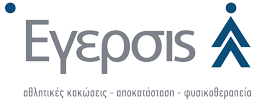EGERSIS is an interdisciplinary rehabilitation team guided by a spirit of constant scientific cooperation between doctors and rehabilitators.
The team is the result of the collective efforts of many medical (physicians, orthopaedics, cardiologists, urologists, otolaryngologists, surgeons) and paramedical (physiotherapists, occupational therapists, hydrotherapists, speech therapists) experts who join forces to treat serious neurological and musculoskeletal injuries. Absolute adherence to the international scientific guidelines and protocols as well as respect and understanding of the patients’’ personality and individual needs are amongst the team’s priorities.

